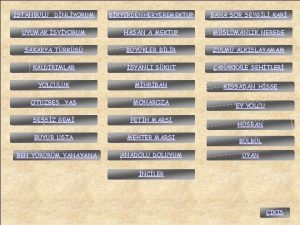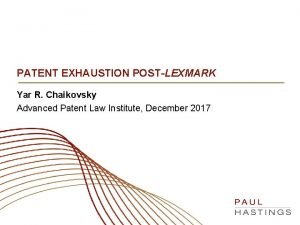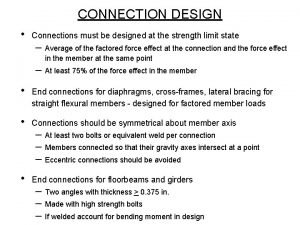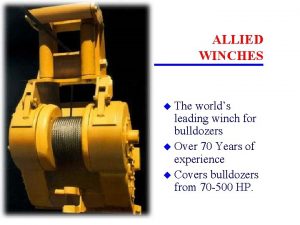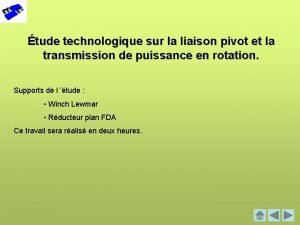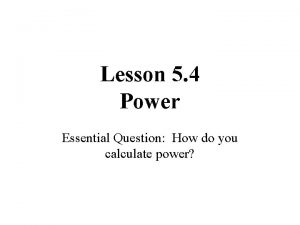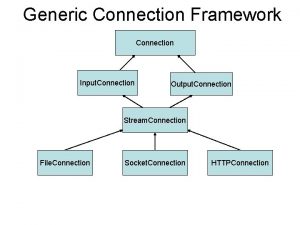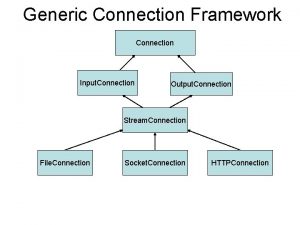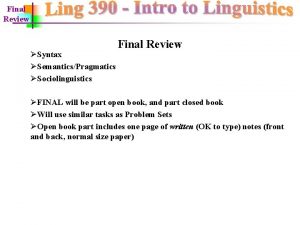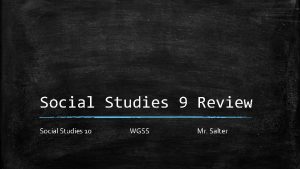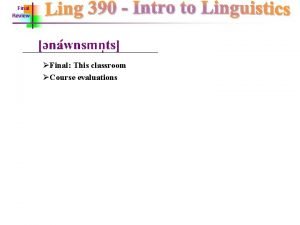Social Studies Final Review WINCH AND YAR CONNECTION












- Slides: 12

Social Studies Final Review WINCH AND YAR CONNECTION st 1 Quarter

Geography The study of Earth and everything on it. Two types of Geography Physical and Human

Human Geography vs Physical Geography Human Geography Religion, language, cities, government Physical Geography Mountains, rivers, oceans, animals

Which of the following is an aspect of Human Geography? A. Polar bears B. The Nile River C. Christianity D. The Sahara Desert Why is your answer correct? Explain your answer

Prime Meridian and Equator Prime Meridian Divides the world into an Eastern and Western Hemisphere Equator Divides the world into a Northern and Southern Hemisphere

Absolute Location vs Relative Location Two types of location Relative Location--- Where something is located in relation to another location. I live by the mall. I live down the road from Mc. Donalds. Absolute Location--- The exact location of a place. Where something is absolutely located. 900 Campbell Lane, Bowling Green, Kentucky 42101 40. 7127° N, 74. 0059° W ( longitude and latitude coordinates)

Distortion The change in size, shape, or position of a location due to trying to show a round Earth on a flat map.

The Continents and Oceans

5 Themes of Geography Location----Where is it? Relative and Absolute. Place--- What is it like when you get there? Things that make the place unique and special. WKU, Lost River Cave, Hotrods, Corvette Plant Human Environment Interaction--- How do people adapt or change the environment? How does the environment affect the people? Movement--- How do people, goods, ideas get from place to place? Region---Locations that have similar characteristics.

Population Density How many people per square mile live in an area. How crowded an area is compared to another location. A high population density does not always mean that the place has a high population. For example, Japan only has 127 million: United States has 330 million Japan has a lower population than the United States, but it has a higher population density because of how small Japan is as a country.

Thematic Map type of map or chart especially designed to show a particular theme connected with a specific geographic area. Most common types of thematic maps Political map—shows state/country boundaries. Sometimes shows largest cities. Physical map---shows physical features of the Earth. Population Density Map---shows how crowded a country or state is. Climate map---shows the different type of weather and weather patterns on Earth.

Natural Resources Things on Earth used by humans. Renewable Trees, water, plants Can be replenished if manage carefully. Non-renewable Oil, coal, gold. Once gone they are gone forever.
 Necip fazıl kaldırımlar
Necip fazıl kaldırımlar Yar chaikovsky
Yar chaikovsky Npn tipi transistör sembolü
Npn tipi transistör sembolü Yar putter
Yar putter Literary connections examples
Literary connections examples Ap gov review final exam review
Ap gov review final exam review Slip critical connection vs bearing connection
Slip critical connection vs bearing connection A307 bolt shear strength
A307 bolt shear strength Minimum fillet weld size
Minimum fillet weld size Bga safe winch launching
Bga safe winch launching Allied winch
Allied winch Schéma cinématique winch
Schéma cinématique winch A motor driven winch pulls the 50 kg student
A motor driven winch pulls the 50 kg student
